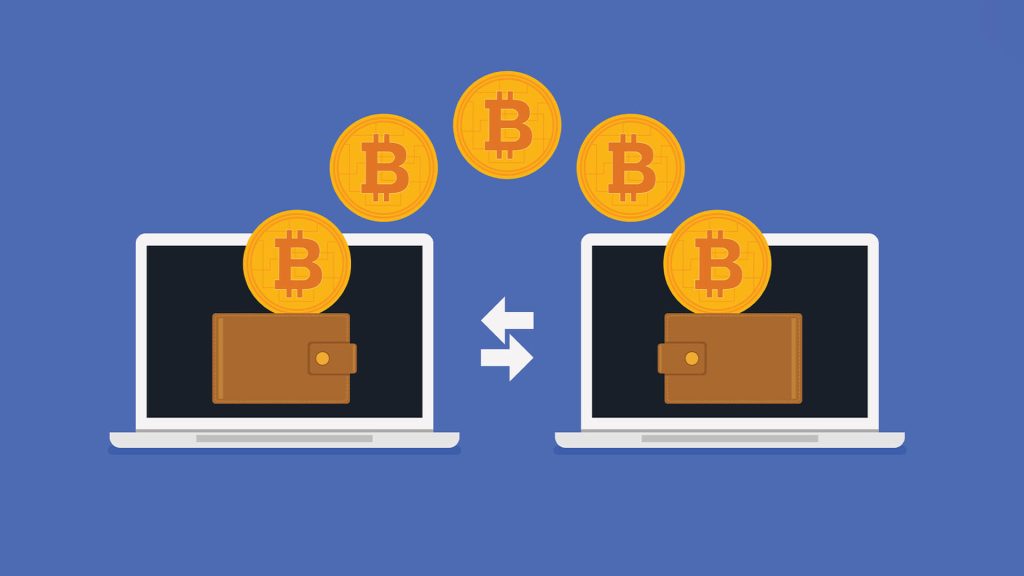Hey there, crypto geeks! Have you ever liked to send and receive cryptocurrencies, though there was a hinder of transaction fees and annoying worries over their safety long after? If yes, then never mind; you are not the only one. You need not worry, because we are about to get down into detail regarding this revolutionary solution—blockchain technology.

In this article, we are going to demystify how blockchain not only disrupts but also totally transforms cryptocurrency transactions. We will cover common objections, fire up curiosity with open loops, and enlighten you with the failures of the traditional transaction methods. So, get set for an exhilarating journey, as we open the five ways in which the blockchain is all set to change your crypto transactions. So buckle up for the ride ahead, which promises to shed light on the world of crypto like never before. Let’s get started!
Decentralization: Rethinking Trust in Transactions
The central feature in the traditional landscape of finance is ‘trust,’ lodged at different centers for different institutions, such as banks and governments. However, it revolutionizes the entire paradigm based on the decentralization of trust as opposed to a centralized system. It is an architecture of information flow. Such an architecture provides for the operation of blockchain on a distributed ledger on which transactions are recorded across a network of nodes.
Every transaction is encrypted, time-stamped, and linked with previous transactions to form an immutable record. A decentralized approach that cuts off the need for intermediaries such as banks within the process, thus making it cheaper and transparent. Trust would no longer rest on an individual’s obligation to do what he or she should, but rather—through blockchain technology—trust would be baked right into the cryptographic integrity of the network itself: a fundamental shift in perspective on how transactions should be trusted and settled.
New Reality: A Firm Foundation for Finance.
One of the major concerns with regard to transactions in cryptocurrencies is the danger of hacking of centralized exchanges and wallets. Blockchain, in contrast, is one of the most effective solutions towards that fragility. Through the use of mechanisms that are cryptographic, transactions are proven to be integral and secure.

Each transaction is encoded and securely tied to earlier transactions in such a way that no prior entry could be retroactively altered by any malevolent actor. In addition, the use of consensus mechanisms like Proof of Work (PoW) or Proof of Stake (PoS) makes the platform secure. With the use of these mechanisms and coupled with cryptography and consensus algorithms, the blockchain enhances the rudiments of finance to a secure and trustless environment of transacting cryptocurrencies.
Immutability: Integrity of Transactions Maintained
This is quite the contrary for traditional financial systems, where altering or tampering with records of any transactions is the order of the day, hence bringing into the picture fraud and distrust. However, the blockchain technology comes with the immutability concept in transactions: once a transaction has been written to a block, the ability to change or delete it doesn’t exist.

This is done by hashing the transaction data cryptographically, where through this process, a unique digital fingerprint is created for this data and stored on the blockchain. This actually renders a change of a transaction highly impracticable, and therefore almost impossible, unless decided and agreed upon by the majority of the nodes in the network. Blockchain, in this regard, maintains the integrity of transactions and hence security of a ledger, thereby evoking confidence and trust in its reliability.
Transparency: Illuminating the Transactional Landscape
Transparency is one of the key virtues of blockchain, providing a transparent and auditable ledger of transactions—a stark contrast to records from transactions that are commonly vague and thus not easily accessible within traditional financial systems. This guarantees that every participant within the network accesses similar records, therefore ensuring transparency within the transactional landscape and furthering the notion of accountability and supervisory control on its users. This will, with blockchain, entail conducting the transactions out in the open, which will thus foster openness and accountability in this concept core to the future of finance.
Efficiency: The Streamlining of the Transaction Process
The biggest inefficiency to be found in traditional financial systems is the inefficiency that comes with long settlement times and the tedium within reconciliation processes. However, to these inefficiencies, blockchain offers an answer by streamlining transactions processes. Through decentralization and automation, blockchain allows transactions to be settled in almost no time, thus getting rid of the need for any intermediaries, not to mention time lag in processing.
Moreover, smart contracts go ahead automatically to conduct and enforce the transaction agreements by themselves in that the terms of the contract are directly written into code to enhance efficiency. Blockchain technology makes transactions in cryptocurrencies both faster and much cheaper, and therefore much more reliable, thereby promoting a more efficient financial ecosystem. Conclusion: Blockchain technology is an advance of monumental measure in the world of cryptocurrency transactions. Thus, blockchain is a change in the meaning of finance in the future. It is a decentralized platform that will mean that no one can alter or destroy information and will provide secure, immutable, transparent, and efficient transactions. Let’s grab the power of Blockchain by its horns and drive the finance of our future towards decentralization.

